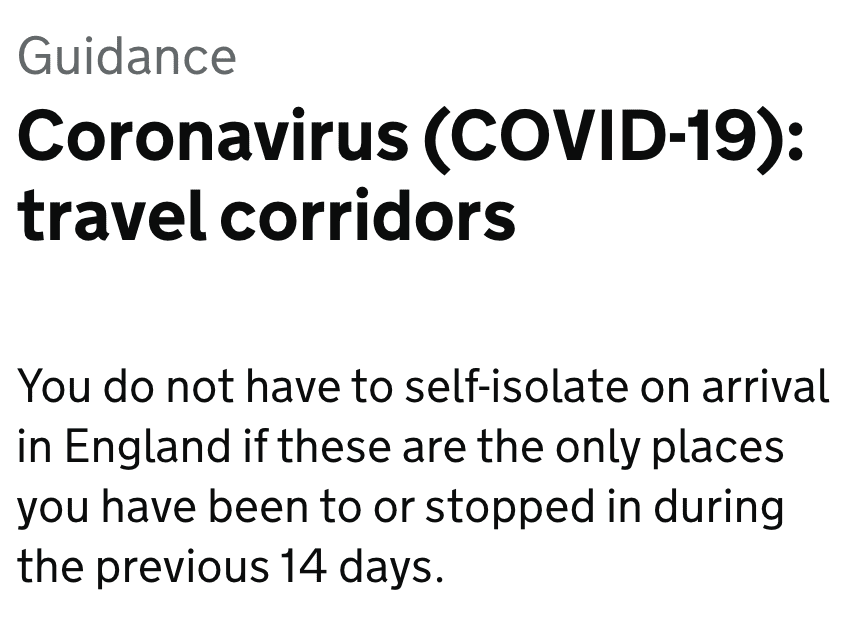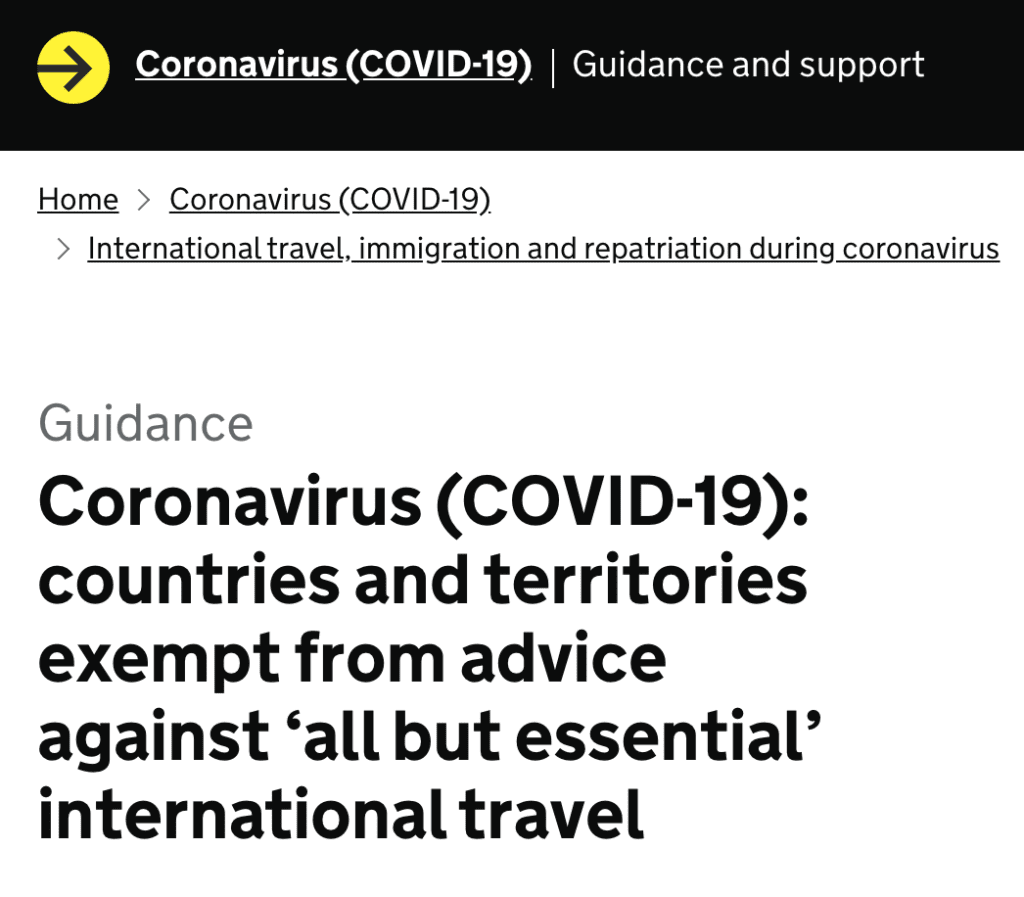Travel Corridors
Coronavirus regulations in the United Kingdom currently mean that you must self-isolate for 14 days if you return to the UK from a country outside the common travel area. However, the UK government has now announced that it is satisfied that it is now safe to ease these measures in England and has introduced travel corridors for some countries and territories.

TravelZork Has a Podcast, ZorkCast
ZorkCast is also available on many of your favorite podcast players including : iTunes, Spotify, Stitcher, Google Podcasts, Overcast, Podchaser, Castro, Castbox, and Pocket Cast.
Get Your Daily Dose
GOT 9 minutes? – A chat about casinos, luxury travel, Las Vegas, and gambling with a focus on experiences. #PaxEx (Passenger Experience) and #CasinoEx (Casino Experience) are major areas of conversation and exploration. Get your daily dose.
ZorkCast, the podcast that is all about helping you travel smarter, gamble smarter, and maximize your adventures.

From 10 July 2020 you will not have to self-isolate when you arrive in England, if you are travelling or returning from one of the travel corridor countries or have not been to or stopped in a country that’s not on the travel corridor list in the previous 14 days. This applies to all travel to England, by train, ferry, coach, air or any other route. If you have been to or stopped in a country that’s not on the travel corridor list you will have to self-isolate until 14 days have passed since you left that country.

In addition, the FCO has updated its global advisory against ‘all but essential’ travel, exempting destinations that no longer pose an unacceptably high risk for British travellers. These exemptions come into effect on 4 July 2020 and these countries have been assessed as no longer presenting an unacceptably high risk to British people travelling abroad. Foreign & Commonwealth Office travel advice is based on risks to British nationals, including in-country public health assessments.
Steve’s View – Travel Corridors
Many in Britain believe that the government have really ‘dropped the ball’ with the new so called ‘Travel Corridors’. Whilst international travel is now largely possible, there are still huge exceptions to the countries deemed safe. The policy also seems largely inconsistent, as countries with higher infection rates in Europe have been deemed safe, whereas countries in other parts of the world have not.
The second confusing issue is that there are effectively two lists, one from the FCO, which suggests a huge number of countries that are now deemed safe to travel to, and another from Department of Transport, which indicates which countries now benefit from a travel corridor. These confuses the issue, as the FCO is stating that you many travel from the 4th of July to certain countries, but the DfT is stating that you still need to quarantine if you return before the 10 July. Furthermore, some of the countries deemed safe by the FCO, are not on the DfT travel corridor list and thus visitors from those countries still must enter a 14-day compulsory quarantine. For example, Canada is currently deemed safe for travel by the FCO, but the DfT is still insisting visitors from the Great White North have to quarantine for 14 days.
“A Train of Thought”
There is a train of thought that suggests countries such as Canada, that are on the FCO list but not the DfT list, do not have a travel corridor due to the issue of reciprocity and the fact that Canada is still requiring a 14 day quarantine for anyone entering Canada. On the other hand, Canada is currently closed to anybody other than permanent residents and a select group of individuals (those on a student visa etc.) and so this point is largely irrelevant currently.
In this writers opinion, though it is very difficult to predict what will happen next, I suspect a large number of additional countries will be added to the ‘travel corridor’ list over the coming weeks. There has been particular annoyance in Britain over the omission of countries such as Portugal one of the most popular destinations for British tourists, and I suspect the government will be keen to add Portugal to the list as soon as possible. There are also other potential diplomatic issues to be considered, for example the exemption of the United States from both lists, although the feeling largely through Europe currently is that the United States are not yet managing the Coronavirus sufficiently effectively.
Exclusive: early access to the Prime Minister Boris Johnson's address to the UK public regarding the new 75 country approved travel list, and the abandoning of UK Air Bridges. pic.twitter.com/wRCdE5FlYI
— Gilbert Ott | GSTP ✈️🌴🌏 (@godsavethepoint) July 2, 2020
Gib’s View
One of our favourite travel bloggers (God Save The Points) had a few “choice” words to share on the topic.
Listen to Episode 93 of ZorkCast Below
[buzzsprout episode=’4430021′ player=’true’]
Also, be sure to join the ZorkCast Group on FaceBook. This is the Facebook group to continue the conversation from the ZorkCast podcast and TravelZork website. Feel free to start a conversation related to anything TravelZork or ZorkCast.
A self-confessed Vegas nerd, Steve visits Las Vegas multiple times a year and can often be found propping up Cosmo’s Chandelier bar. Steve’s expertise lies in maximising the everyday visitor’s Vegas experience, no matter the budget. He has vast amounts of knowledge in all aspects of a Vegas vacation, from the best hotels to visit, to the best games to play, to the best players club to join to maximise comps. Steve has recently joined the TravelZork family, merging his highly successful Las Vegas UK blog into the TravelZork brand. Steve’s other interests lie in aviation and travel more generally. He’s also a big fan of country music (someone has to be!)
















